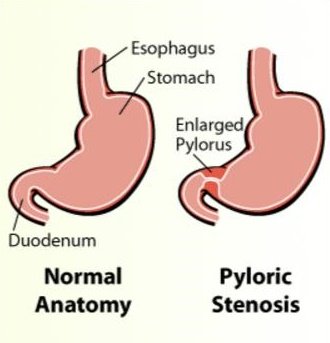Pylorectomy
Overview
Pylorectomy is a surgical procedure involving the removal of the pylorus, a part of the stomach that connects to the duodenum (first part of the small intestine). This procedure is typically performed to address certain medical conditions or diseases affecting the pyloric region.
Pylorectomy is a specialized surgical procedure performed by skilled healthcare professionals at Indotaj Medical Center, aiming to address specific gastrointestinal conditions affecting the pyloric region. Individual patient cases and treatment plans may vary, and detailed discussions with the healthcare team will provide personalized information based on the patient’s condition.

Why it's done
Pylorectomy treatment may be recommended for several reasons, including:
- Pylorectomy is commonly performed to treat pyloric stenosis, a condition where the muscles around the pylorus thicken, causing a narrowing or blockage.
- In some cases, pylorectomy may be necessary to address pyloric ulcers or tumors affecting the pyloric region.
- Pylorectomy may be performed to relieve gastric outlet obstruction, where there is a blockage preventing the normal flow of stomach contents into the small intestine.
- In cases of stomach cancer affecting the pylorus, surgical removal through pylorectomy may be part of the treatment plan.
- In certain cases, pylorectomy may be considered as part of surgical interventions for severe gastroesophageal reflux disease (GERD) or other reflux-related issues.
Risk
Pylorectomy treatment, like any major surgery, can pose potential risks and complications. Some of these include:
- Bleeding
- Infection
- Anesthesia Risks
- Complications with Wound Healing
- Gastrointestinal Complications
- Reaction to Surgical Materials
- Adverse Events Specific to Individual Cases
How do I get ready for Pylorectomy treatment?
Preparing for Pylorectomy treatment involves several steps to ensure a smooth procedure and recovery:
- Your healthcare team will conduct a thorough preoperative assessment, including a review of your medical history, physical examination, and any necessary diagnostic tests.
- Inform your healthcare provider about any medications you are taking, including prescription drugs, over-the-counter medications, and supplements. They may instruct you to stop or adjust certain medications before the surgery.
- You will likely be instructed not to eat or drink anything for a specified period before the surgery. This fasting period is crucial to reduce the risk of complications related to anesthesia.
- Shower with a special antibacterial soap the night before or the morning of the surgery to reduce the risk of infection.
- Follow any additional skin preparation instructions provided by your healthcare team.
- Wear loose, comfortable clothing on the day of the surgery.
- Remove any jewelry, piercings, or accessories before the surgery.
- Since pylorectomy involves anesthesia, you will not be able to drive yourself home after the procedure. Arrange for a responsible adult to drive you or accompany you in transportation.
- Discuss postoperative care instructions with your healthcare team. Understand any restrictions on activities, dietary changes, and medications you may need during the recovery period.
- Ensure that you have any prescribed medications ready for use at home.
- Have a support system in place for the postoperative period. This may include friends or family members who can assist you during the initial recovery phase.


